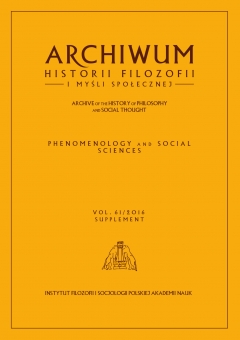Georg Simmels und Ferdinand Tönnies’ Kritik am Selbstverständnis der modernen Sozialphilosophie
Georg Simmel, Ferdinand Tönnies and the Discussion on the Understanding of the Modern Social Philosophy
Author(s): Mirko WischkeSubject(s): Social Philosophy, Sociology, 19th Century Philosophy
Published by: Instytut Filozofii i Socjologii Polskiej Akademii Nauk
Keywords: Social philosophy; sociology; theoretical philosophy; the social question; community; normativity; Georg Simmel; Ferdinand Tönnies; Axel Honneth;
Summary/Abstract: Why are questions of normativity so important for the discussions in social philosophy? Is a concept of social philosophy beyond pure normativity questions possible? These fundamental questions got their importance in the beginning of the modern social philosophy. Different currents and schools in philosophy and sociology discussed them. On the one side for neo-kantian philosophers like Stammler social philosophy is a strong normative discipline in the field of practical philosophy. According to Stammler the idea of “community of free people” forms the fundamental base f o r a s o c i a l philosophy. On the other side for thinkers like Tönnies social philosophy is more or less a part of the theoretical philosophy and that’s why it is not fixed on questions of normativity. Tönnies and Simmel give not an answer to the question, which central themes, conceptions and ideas are necessary for an understanding of social philosophy beyond pure normative questions. That is one of the reasons for a dominant normative understanding of social philosophy in the current debates in the German speaking countries.
Journal: Archiwum Historii Filozofii i Myśli Społecznej
- Issue Year: 2016
- Issue No: 61supl.
- Page Range: 57-66
- Page Count: 10
- Language: German

